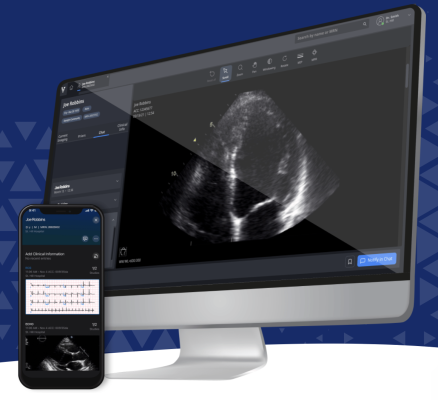
September 7, 2023 — Viz.ai, a leader in AI-powered disease detection and intelligent care coordination, announced that it has signed an exclusive agreement with University of California, San Francisco (UCSF) to commercialize three AI algorithms for the automated detection of cardiovascular diseases. Developed at UCSF by leading researchers, these AI algorithms to detect cardiac amyloidosis, pulmonary hypertension, and supraventricular tachycardia are based on analysis of electrocardiograms (ECGs), the most widely used diagnostic test for characterization of cardiac structure and electrical activity of the heart.
“We are enthusiastic about the possibility of applying these AI-powered algorithms in clinical practice to enable knowledge and discovery, and to provide timely insights for decision-making,” said Anthony Francis, executive director of the Office of Technology Management and Advancement from the University. ”These algorithms improve on existing systems and meet or exceed clinically accepted standards of care.”
Cardiovascular disease is the leading cause of death around the globe, with over 18 million fatalities annually. Accordingly, early detection and treatment are of paramount importance. Viz.ai offers a comprehensive AI-powered platform that can auto-detect a wide range of suspected cardiovascular diseases using regulatory-cleared algorithms and facilitate care coordination with HIPAA-compliant communication tools. Following regulatory clearance, these three new algorithms will be a part of Viz.ai’s expanding offering, which includes ECG-based AI algorithms, ECG viewer, AI-interpretation of echos and echo viewer, enabling cardiac care teams to detect disease earlier and coordinate care in real time.
“Collectively, cardiac amyloidosis, pulmonary hypertension, and supraventricular tachycardia affect up to 75 million people worldwide and are extremely difficult to detect or can take years to diagnose. Earlier cardiovascular disease detection and management are critical not only to improve patient lives and increase access to life-saving treatments but also to reduce healthcare provider burnout,” said Steve Sweeny, vice president of life science business development and strategy at Viz.ai. “We are proud to work with UCSF to develop more AI-powered tools that can advance cardiac care.”
For more information: www.viz.ai


 January 15, 2026
January 15, 2026 









